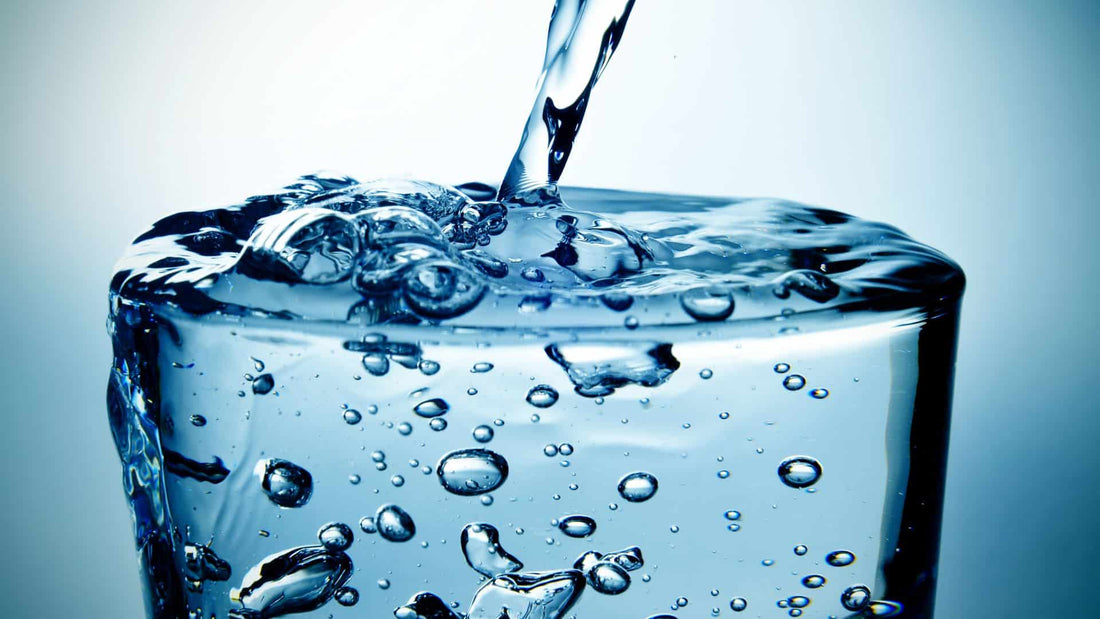Water is the essence of life, yet many people struggle to drink enough of it daily. With countless hydration myths and mixed messages about how much water we really need, it’s easy to get confused. This guide will break down the science of drinking water, its impact on your body, and how to maintain optimal water hydration for peak performance and well-being.
Why Hydration Matters
Water makes up approximately 60% of the human body and plays a crucial role in nearly every bodily function. It helps regulate temperature, transport nutrients, remove waste, and support brain function. Despite its importance, research suggests that 75% of Americans are chronically dehydrated. This statistic highlights the need for a better understanding of drinking water hydration and how it affects overall health.
How Much Water Do You Need?
The commonly cited recommendation is to drink eight 8-ounce glasses of water daily (the "8x8 rule"), but hydration needs vary based on factors like age, weight, activity level, and climate. According to the U.S. National Academies of Sciences, Engineering, and Medicine, the daily water intake recommendation is:
- Men: About 3.7 liters (125 ounces)
- Women: About 2.7 liters (91 ounces)
However, if you engage in strenuous exercise, live in a hot climate, or consume diuretics like caffeine or alcohol, your needs may be higher.
The Science Behind Drinking Water and Body Function
1. Brain Function and Mood
Mild dehydration (as little as 1-2% fluid loss) can impact brain function. Studies show that even slight dehydration can cause mood swings, difficulty concentrating, headaches, and fatigue. A study in the journal Nutrients found that individuals who consumed more drinking water performed better on cognitive tasks and reported improved mood compared to those who were mildly dehydrated.
2. Physical Performance and Hydration
For athletes and active individuals, water hydration is essential for endurance, strength, and recovery. Dehydration leads to reduced motivation, increased fatigue, and decreased exercise efficiency. According to the American College of Sports Medicine, losing just 2% of your body weight in fluids can significantly impair physical performance.
3. Digestion and Metabolism
Proper drinking water hydration supports digestion by helping break down food and absorb nutrients. Water also plays a key role in metabolism. Research published in The Journal of Clinical Endocrinology & Metabolism found that drinking 500 mL (about 17 ounces) of water can temporarily boost metabolic rate by 30% for about 30-40 minutes.
4. Skin Health and Hydration
Although drinking water won’t magically erase wrinkles, staying hydrated helps maintain skin elasticity and moisture. Dehydration can lead to dryness, irritation, and an increased appearance of fine lines. A study in the International Journal of Cosmetic Science confirmed that higher water hydration levels improve skin texture and appearance.
Signs of Dehydration You Shouldn’t Ignore
Recognizing dehydration symptoms is key to maintaining optimal drinking water hydration levels. Common signs include:
- Dry mouth and lips
- Dark yellow urine
- Dizziness or lightheadedness
- Headaches
- Fatigue and sluggishness
- Muscle cramps
Severe dehydration can lead to confusion, rapid heartbeat, and even hospitalization. If you experience these symptoms, immediate drinking water intake is essential.
Best Strategies to Improve Your Daily Water Intake
1. Carry a Reusable Water Bottle
Having a water bottle within reach increases your likelihood of drinking throughout the day. Opt for a BPA-free bottle or one with time markers to track your intake.
2. Set Hydration Reminders
If you often forget to drink water, set alarms or use hydration apps to remind you to sip water at regular intervals.
3. Eat Water-Rich Foods
Hydration isn’t just about drinking water—your diet plays a role too. Foods like cucumbers (96% water), watermelon (92%), oranges (86%), and spinach (93%) contribute to overall water hydration.
4. Infuse Your Water for Better Flavor
If plain water feels boring, try adding natural flavors like lemon, mint, berries, or cucumber. Infused water can make hydration more enjoyable without added sugars.
5. Drink a Glass Before Meals
Drinking a glass of water before meals not only boosts water hydration but can also aid digestion and reduce overeating. A study in Obesity found that individuals who drank water before meals consumed fewer calories.
6. Monitor Your Urine Color
A simple way to track hydration is by checking urine color. Pale yellow indicates proper drinking water hydration, while dark yellow or amber suggests dehydration.
Hydration Myths You Should Stop Believing
1. "You Can Only Hydrate With Water"
While water is the best option, other fluids like herbal teas, coconut water, and even coffee contribute to hydration. However, sugary sodas and alcohol can dehydrate you.
2. "Drinking More Water Will Always Improve Skin"
While hydration helps maintain skin health, excessive water intake alone won’t solve skin issues. Other factors like diet, skincare routine, and environmental exposure play a role.
3. "You Should Only Drink Water When You're Thirsty"
By the time you feel thirsty, your body is already mildly dehydrated. Drinking water consistently throughout the day is a better strategy.
4. "Drinking Ice-Cold Water Burns More Calories"
While cold water may slightly increase calorie burn due to thermogenesis, the effect is minimal and shouldn’t be relied upon for weight loss.

Special Hydration Considerations for Different Groups
1. Athletes and Fitness Enthusiasts
Athletes should drink water before, during, and after workouts. The American Council on Exercise recommends:
- 17-20 ounces of water 2-3 hours before exercise
- 7-10 ounces every 10-20 minutes during exercise
- 16-24 ounces for every pound lost post-workout
2. Pregnant and Breastfeeding Women
Pregnant women should aim for about 2.3 liters (78 ounces) of fluids daily, while breastfeeding mothers need even more—approximately 3.1 liters (104 ounces).
3. Elderly Individuals
Aging reduces the body's ability to retain water and sense thirst. Older adults should drink consistently throughout the day to prevent dehydration-related complications like urinary tract infections or kidney issues.
Final Thoughts on Drinking Water Hydration
Staying hydrated is one of the simplest yet most powerful ways to support your health. Whether improving cognitive function, enhancing physical performance, or maintaining glowing skin, proper drinking water hydration is essential. By adopting small daily habits like carrying a water bottle, eating water-rich foods, and tracking urine color, you can master hydration and keep your body functioning at its best.
Drink up, stay hydrated, and prioritize your well-being—your body will thank you!
Stay ahead in the wellness market with BoostedOxygenWater, the ultimate solution for optimal drinking water hydration. Packed with premium oxygen-infused water, our product enhances energy, supports metabolism, and keeps your customers refreshed all day. With the growing demand for high-quality hydration, now is the perfect time to stock BoostedOxygenWater in your store. Elevate your offerings with a trusted brand that prioritizes health and performance.
Don't miss out—schedule a call today to explore our wholesale opportunities and bring superior hydration to your customers!
Reference:
American College of Sports Medicine. (2016). Selecting and effectively using hydration for fitness. Retrieved from https://www.acsm.org
American Council on Exercise. (2021). Hydration guidelines for athletes. Retrieved from https://www.acefitness.org
Grandjean, A. C., Reimers, K. J., Bannick, K. E., & Haven, M. C. (2003). The effect of caffeinated, non-caffeinated, caloric, and non-caloric beverages on hydration. Journal of the American College of Nutrition, 22(2), 165–173. https://doi.org/10.1080/07315724.2003.10719287
Institute of Medicine. (2005). Dietary reference intakes for water, potassium, sodium, chloride, and sulfate. Washington, DC: National Academies Press. https://doi.org/10.17226/10925
Masento, N. A., Golightly, M., Field, D. T., Butler, L. T., & van Reekum, C. M. (2014). Effects of hydration status on cognitive performance and mood. British Journal of Nutrition, 111(10), 1841-1852. https://doi.org/10.1017/S0007114513004455
Popkin, B. M., D’Anci, K. E., & Rosenberg, I. H. (2010). Water, hydration, and health. Nutrition Reviews, 68(8), 439–458. https://doi.org/10.1111/j.1753-4887.2010.00304.x
Stookey, J. D., Constant, F., Gardner, C. D., & Popkin, B. M. (2007). Replacing sugar-sweetened beverages with drinking water is associated with lower energy intake. Obesity, 15(12), 3013–3022. https://doi.org/10.1038/oby.2007.359

